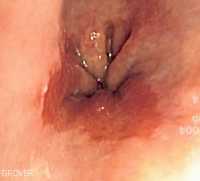Author Interviews, Brigham & Women's - Harvard, Cancer Research, Dental Research, Esophageal, Gastrointestinal Disease / 24.07.2020
Gum Disease Linked to Cancer of Esophagus and Stomach
MedicalResearch.com Interview with:
Mingyang Song, MD, ScD.
Division of Gastroenterology
Clinical and Translational Epidemiology Unit, Massachusetts General Hospital and
Harvard Medical School
Department of Nutrition and Department of Epidemiology
Harvard T.H. Chan School of Public Health
Boston, Massachusetts
MedicalResearch.com: What is the background for this study?
Response: Recent studies showed a presence of dysbiotic oral microbiome in patients with esophageal and gastric cancer, suggesting a link between oral health and these cancers. However, how periodontal disease and tooth loss may influence the risk of these cancers has been inconsistent.
MedicalResearch.com: What are the main findings?
Response: Our findings support a possible role of oral health in the development of upper GI cancer. Individuals with periodontal disease and tooth loss are at higher risk of developing esophageal and gastric adenocarcinoma. The risk is particularly high for individuals with both periodontal disease and tooth loss.
(more…)






